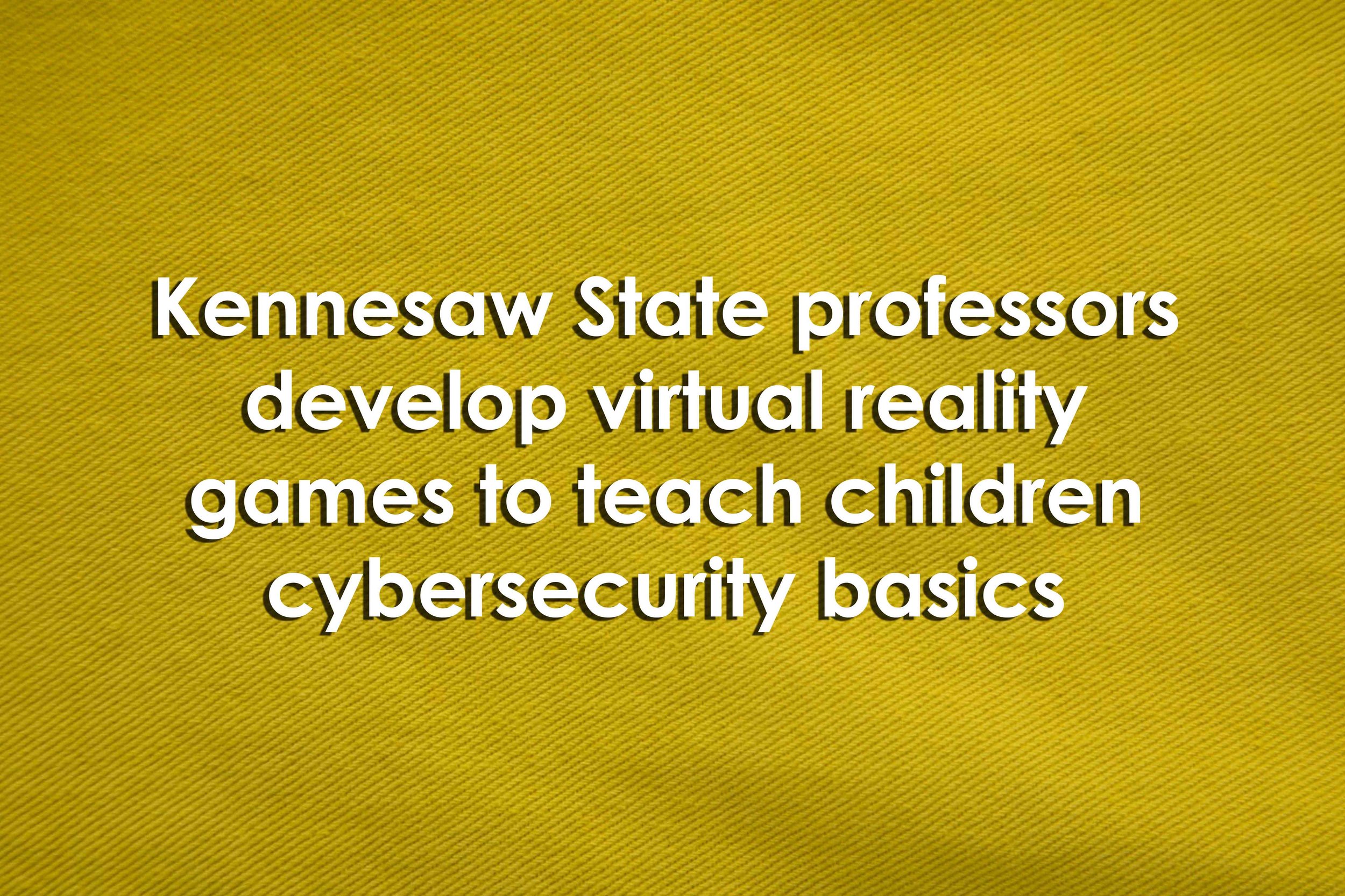Kennesaw State professors develop virtual reality games to teach children cybersecurity basics
Kennesaw State professors develop virtual reality games to teach children cybersecurity basics
Kennesaw State professors develop virtual reality games to teach children cybersecurity basics
By Travis Highfield
October 1, 2021
Summary
In order to teach school-age children the basics of cybersecurity, two Kennesaw State University professors are collaborating on a method to deliver lessons where K-12 students spend most of their time: playing video games.
Launched by Joy Li, assistant professor of computer game design and development, and Yan Huang, assistant professor of software engineering, the project is pegged as an alternative to traditional learning activities by teaching students the principles of cybersecurity in a immersive virtual reality environment.
"Our aim is to take concepts that are otherwise very complex for students and put them in a format that is much simpler for them to understand," said Huang, who teaches in Kennesaw State's College of Computing and Software Engineering.
Currently, four of the six modules are ready to play while KSU undergraduate and graduate students completing the remaining modules.
A leader in innovative teaching and learning, Kennesaw State University offers undergraduate, graduate and doctoral degrees to its more than 41,000 students.
With 11 colleges on two metro Atlanta campuses, Kennesaw State is a member of the University System of Georgia and the second-largest university in the state.
Kennesaw State is a Carnegie-designated doctoral research institution, placing it among an elite group of only 6 percent of U.S. colleges and universities with an R1 or R2 status.
Reference
Highfield, T. (2021, October 1). Kennesaw State professors develop virtual reality games to teach children cybersecurity basics. Retrieved November 19, 2021, from https://news.kennesaw.edu/stories/2021/virtual-reality-games-teach-cybersecurity-basics.php


